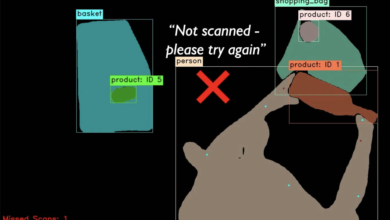
In today’s fast-paced and data-driven world, data science and business analytics have emerged as pivotal fields that drive decision-making, innovation, and competitiveness across various industries. As businesses generate massive volumes of data, the demand for skilled professionals to extract valuable insights from this data has skyrocketed.
This comprehensive guide aims to provide aspiring data scientists and business analysts with a roadmap to kickstart their careers in this exciting and rapidly evolving domain.
What is Data Science?
Data science is an interdisciplinary domain that combines techniques from statistics, mathematics, computer science, and domain expertise to extract meaningful patterns, insights, and knowledge from structured and unstructured data. Data scientists use various tools, algorithms, and machine learning models to analyze data and make informed decisions that drive business strategies.

What is Business Analytics?
Business analytics involves data analysis and statistical methods to identify business trends, predict outcomes, and drive strategic decisions. It focuses on transforming data into actionable insights to improve business performance, optimize processes, and gain a competitive edge in the market.
Key Differences and Overlaps between Data Science and Business Analytics
While data science and business analytics share common goals of extracting insights from data, they have distinct approaches and areas of focus. Data science has a broader scope and involves more advanced methods like machine learning and artificial intelligence. On the other hand, business analytics is specifically tailored to solve business-related problems and often involves a deeper understanding of industry dynamics.
Essential Educational Background and Degrees
Data science and business analytics typically require a solid educational foundation in computer science, statistics, mathematics, engineering, or a related discipline. Many professionals pursue bachelor’s or master’s degrees in data science, business analytics, computer science, or a relevant field to gain the necessary knowledge and acquire career-setting skills through online platfoms and data science courses.
Programming Skills: Python, R, SQL
Proficiency in Python and R programming languages is essential for data manipulation, analysis, and modeling. Additionally, knowledge of SQL is crucial for database querying and data retrieval tasks.
Mathematics and Statistics Knowledge
Solid knowledge of mathematics and statistics is fundamental for data analysis, hypothesis testing, and building predictive models. Concepts like linear algebra, calculus, probability, and inferential statistics are vital for data science and business analytics.
Data Visualization and Communication Skills
Data visualization skills are critical for presenting complex data insights clearly and compellingly. Effective communication skills are equally important, as data professionals need to articulate their findings to non-technical stakeholders.
Domain Knowledge and Industry Expertise
Data scientists and business analysts often work in specific industries like finance, healthcare, marketing, or e-commerce. Therefore, having domain knowledge and understanding industry-specific challenges and trends can be advantageous.
Gaining Hands-on Experience
- Participating in Data Science Projects and Competitions
Engaging in real-world data science projects and participating in data competitions like Kaggle challenges can provide invaluable hands-on experience. Working on practical problems allows aspiring data scientists to apply their skills, explore different data types, and experiment with various algorithms.
- Working on Real-world Business Analytics Projects
For business analysts, collaborating on real business problems within an organization or through internships can provide valuable experience translating data into actionable insights for decision-makers.
- Leveraging Open-source Datasets and Kaggle Challenges
Open-source datasets and Kaggle competitions offer a vast resource for practicing data analysis and machine learning. These platforms provide access to diverse datasets and allow individuals to benchmark their skills against other data enthusiasts.
- Building a Data Science Portfolio
Creating a portfolio of projects that demonstrate your data science and analytics skills is an effective way to impress potential employers. Including detailed explanations of the problems tackled, methodologies used, and the impact of your analysis adds value to your portfolio.
Online Courses and Certifications
- Top Online Platforms for Data Science and Business Analytics Courses
Numerous online learning platforms offer comprehensive data science and business analytics courses. Platforms like Great Learning, Coursera, Udacity, edX, and DataCamp provide curated courses by industry experts and academics.
- Choosing the Right Courses for Your Career Goals
Before enrolling in courses, aspiring professionals should identify their career goals and select courses that align with their interests and desired specialization.
- Popular Data Science Certifications and Their Benefits
Certifications from reputed organizations, such as Coursera, edX, or Microsoft, can bolster your resume and demonstrate your commitment to continuous learning and skill development.
Data Science Bootcamps and Workshops
- Overview of Data Science Bootcamps
Data science bootcamps are immersive and intensive training programs designed to fast-track individuals into data science careers. These programs often cover various topics, including data analysis, machine learning, and data engineering.
- Benefits of Joining Data Science Bootcamps
Bootcamps offer a structured curriculum, hands-on projects, and mentorship, making them an excellent option for individuals seeking a condensed and practical learning experience.
- Selecting the Best Bootcamp for Your Learning Needs
Before enrolling in a data science bootcamp, it is essential to research the curriculum, instructor qualifications, alumni success stories, and job placement rates.
Pursuing Higher Education and Advanced Degrees
For those seeking in-depth knowledge and specialization, pursuing a master’s certificate degree in data science or business analytics can be a practical and wise investment in their careers. Ph.D. programs provide opportunities for research and exploration of cutting-edge data science topics. They are suitable for individuals interested in contributing to the advancement of the field. Advanced degrees require significant time and financial investment, so individuals should weigh the benefits and costs before pursuing them.
Networking and Professional Associations
- Joining Data Science and Analytics Communities
Networking with fellow data science professionals through online forums, social media groups, and local meetups fosters collaboration and knowledge sharing.
- Attending Data Science Conferences and Events
Participating in data science conferences and workshops allows individuals to stay updated with the latest market trends, connect with experts, and gain exposure to cutting-edge research.
- Benefits of Networking for Career Advancement
Networking opens doors to potential job opportunities, mentorship, and collaborations that can accelerate career growth.
Internships and Industry Collaborations
- Importance of Data Science Internships
Internships provide valuable industry exposure, hands-on experience, and a chance to work on real projects.
- Finding Internship Opportunities
Exploring job portals, company career pages, and networking events can help find data science internships.
- Collaborating with Companies on Data Science Projects
Collaborating with organizations on data science projects as a consultant or freelancer can provide real-world experience and build professional connections.
Building a Personal Brand and Online Presence
- Creating a Professional LinkedIn Profile
A well-crafted LinkedIn profile showcases skills, accomplishments, and project experiences to potential employers.
- Writing Data Science Blogs and Articles
Blogging about data science topics establishes authority and demonstrates your expertise to a broader audience.
- Engaging in Data Science Discussions on Social Media
Participating in discussions on platforms like Twitter or Reddit allows you to interact with data science enthusiasts and professionals.
Job Search and Application Strategies
Securing a position in the competitive field of data science and business analytics requires a well-structured job search and effective application strategies. Aspiring data professionals should focus on crafting a compelling resume, preparing for interviews, and leveraging various job search platforms. Here are some key strategies to enhance your job search efforts:
- Focus on Key Skills: Clearly list your technical skills, such as Python and R programming languages, data visualization tools (Tableau, Power BI), machine learning frameworks (Scikit-learn, TensorFlow), and database querying (SQL).
- Showcase Projects: Include a separate section to showcase your data science projects. Highlight the problem statement, methodologies used, data analysis, and the impact of your projects on business outcomes.
- Quantify Achievements: Use quantitative metrics to demonstrate your impact. For example, mention the percentage increase in accuracy achieved by a machine learning model you developed.
- Education and Certifications: List your educational background, degrees, and relevant certifications. If you have completed online courses or participated in data science competitions, include them as well.
- LinkedIn Profile Link: Give a link to your professional LinkedIn profile for recruiters to learn more about your skills and accomplishments.
Preparing for Data Science Interviews
Data science interviews can be rigorous and may include technical assessments to evaluate your problem-solving abilities. To excel in interviews, consider the following preparation strategies:
- Review Core Concepts: Brush up on fundamental data science concepts, such as statistical methods, probability, linear algebra, and machine learning algorithms.
- Practice Coding: Practice coding in languages most commonly used in data science, such as Python or R programming. Familiarize yourself with common data manipulation and analysis libraries.
- Solve Sample Problems: Solve sample data science interview questions and challenges available on online platforms. This will help you get accustomed to the problem-solving approach required in interviews.
- Data Storytelling: Work on your ability to communicate data insights effectively. Practice presenting your data science projects and findings clearly and concisely.
- Mock Interviews: Conduct mock interviews with peers or mentors to simulate real interview scenarios and receive feedback on your performance.
Navigating Job Portals and Industry-specific Platforms
Finding the right data science job opportunities requires strategic navigation of job portals and industry-specific platforms. Here are some tips to optimize your job search:
- Targeted Job Search: Use specific keywords like “data scientist,” “business analyst,” or “machine learning engineer” to narrow down job search results on job portals.
- Industry Forums and Meetups: Join data science forums and attend industry-specific meetups to connect with professionals and gain insights into job opportunities.
- Company Career Pages: Regularly visit companies’ career pages known for their data-driven culture, as they often post job openings related to data science and analytics.
- LinkedIn Job Postings: Follow data science-related hashtags and companies on LinkedIn to stay updated with job postings in your field of interest.
- Networking: Leverage your professional network to seek referrals and recommendations from individuals working in the data science industry.
How to Move from Business Intelligence to Data Science?
For professionals in business intelligence looking to transition to data science, building on their existing analytical skills presents a valuable opportunity. The field of data science offers a seamless pathway for finance and marketing professionals to leverage their expertise in optimizing business strategies and making data-driven decisions. By combining their domain knowledge with data science techniques, finance professionals can perform advanced financial analysis, risk modeling, and predictive forecasting. Similarly, marketing professionals can harness data science to conduct customer segmentation, personalized marketing campaigns, and sentiment analysis, leading to more effective marketing strategies.
Continuous learning and staying updated with industry trends are paramount to ensure career growth and advancement in the data science domain. The fast-paced nature of technology and data science demands that professionals keep themselves informed about the latest tools, algorithms, and methodologies. Seeking mentorship and guidance from experienced data scientists can be immensely beneficial in navigating career challenges, gaining valuable insights, and making well-informed decisions. Additionally, actively contributing to open-source projects and engaging with the data science community showcases expertise and fosters collaboration and knowledge-sharing. By following these tips and embracing the ever-evolving world of data science, finance, and marketing professionals can unlock new opportunities and excel in their data-driven careers.
Challenges and Opportunities in the Data Science Field
The field of data science presents both challenges and opportunities that data professionals need to navigate effectively. One of the critical challenges in data science is addressing ethical and privacy concerns. With the growing volume of data being collected and analyzed, data scientists must be vigilant about ethical considerations, data privacy, and the responsible use of data. They should adhere to ethical guidelines and industry best practices to ensure data is handled with utmost confidentiality and integrity. As data can have far-reaching consequences, it is crucial for data professionals to be mindful of potential biases in the data and the implications of their analysis on various stakeholders. By prioritizing ethical practices, data scientists can build trust and credibility and contribute to a more responsible and sustainable data-driven world.
Industry Opportunities and Innovation
The data science field also presents exciting opportunities for growth and innovation. Keeping abreast of emerging technologies is essential for data scientists to remain at the forefront of the industry. As data science and business analytics evolve, professionals must adapt to technological advancements and evolving demands. Embracing new tools, frameworks, and algorithms can enhance the efficiency and accuracy of data analysis, leading to more insightful and actionable results. Moreover, data professionals should actively seek out opportunities for professional development and continuous learning to stay relevant and competitive in the job market. By updating to the latest market trends, technologies in data science and understanding data analytics essentials, professionals can unlock new opportunities for career advancement and contribute to cutting-edge research and projects.
Conclusion
Pursuing a career in data science and business analytics offers a promising and fulfilling path for those interested in working with data. The key lies in acquiring essential skills, gaining practical experience through projects, and staying updated with industry trends. Continuous learning and seeking mentorship are vital for success in this ever-evolving field. Embracing these opportunities can lead to a rewarding and impactful career in the data-driven world.





